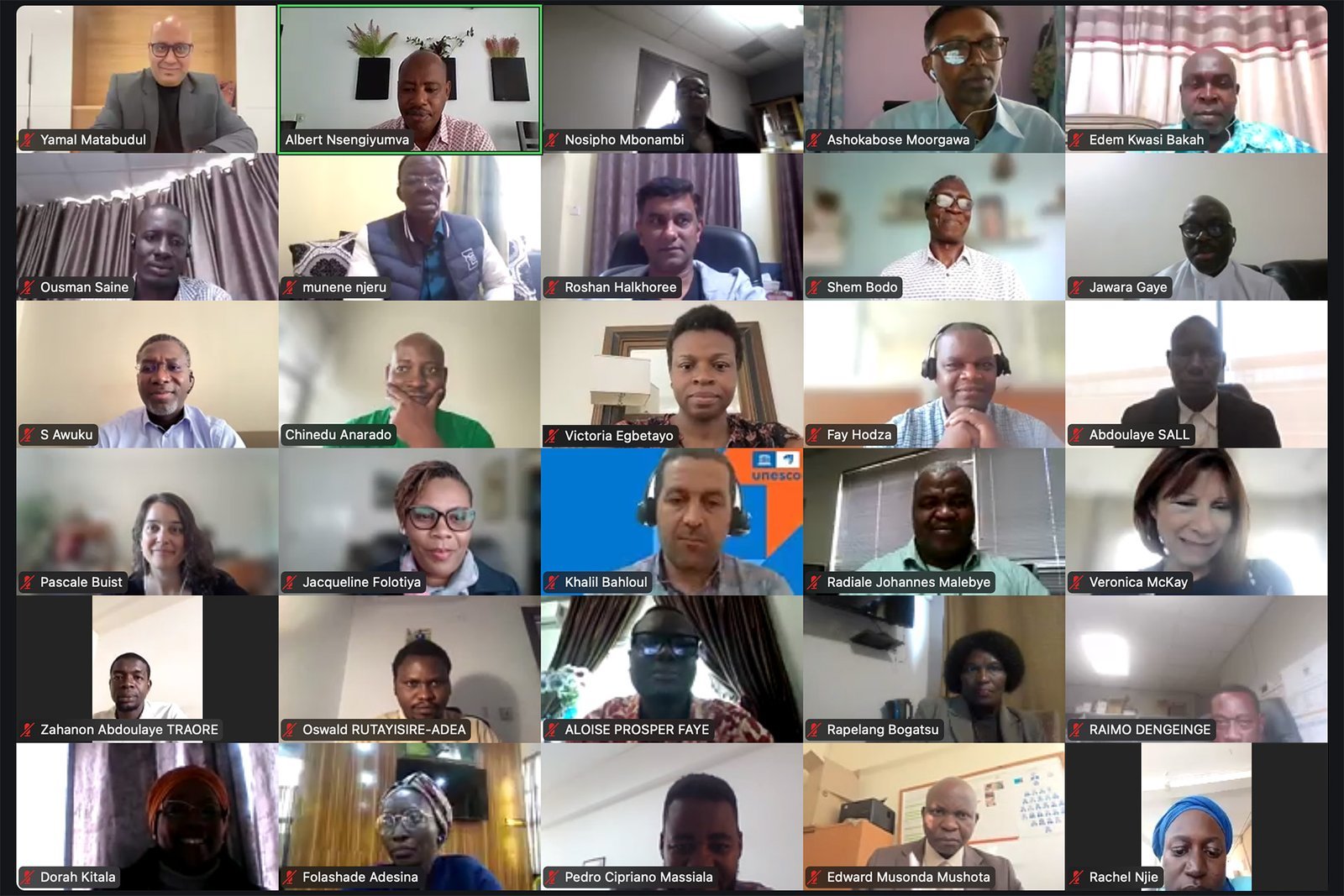Education stakeholders validate ADEA’s five-year strategic plan and resource mobilization strategy

On Thursday 27th June, ADEA held a technical webinar that validated its strategic plan and the accompanying resource mobilization strategy for 2024 - 2028. This new plan will drive ADEA’s support to member countries and engagement with key education stakeholders in the next five years.
In a presentation led by the Executive Secretary, Albert Nsengiyumva, and supported by the Senior Programs Officer, Shem Bodo, the new strategic plan outlines how ADEA will work with member-countries to transform schooling to meaningful learning. It reiterates ADEA’s vision, mission and core values of resilience, excellence, advocacy, and leadership (REAL), adjusted considering new realities and emerging issues in education.
Four pillars or strategic initiatives underpin the new strategic plan. Pillar 1 seeks to prioritize foundational learning and improve its salience and accountability, in Africa. The second pillar focuses on remodeling technical and vocational skills development and vocationalizing secondary education. Pillar 3 seeks to improve scientific research and to harmonize quality assurance and qualification frameworks and certifications in higher education. The fourth pillar is cross-cutting, aimed at working with countries and partners for a more resilient educational system in the continent in three areas: improving the utilization of quality education and skills data, leveraging education technology (EdTech) to improve access and education outcomes, and improving access, equity and inclusion, especially for learners in vulnerable populations. Meanwhile, the resource mobilization strategy provides a roadmap for galvanizing financial and non-financial resources towards the full implementation of the strategic plan.
Partner feedback at the session proposed some revised approaches around foundational learning, introduction of vocational skills in secondary education, clarity on ADEA’s future structure, the role of structured pedagogy, promotion of a competency-based approach in the certification frameworks, the role of leadership as well as the execution timeline for the new strategic plan.
In response, Albert welcomed the feedback and encouraged participants to share their views with the ADEA Secretariat through email. He outlined ADEA’s plan to have a more robust legal framework while remaining with the host organization, the African Development Bank (AfDB).
Participants at the webinar included permanent secretaries from The Gambia and Zambia, and education directors and other senior officials from Angola, Botswana, Burkina Faso, Cote d’Ivoire, eSwatini, Kenya, Madagascar, Mauritius, Namibia, Nigeria, Senegal, South Africa and Tanzania. This is in addition to stakeholders and partners within the Africa education ecosystem, including representatives from VVOB, UNESCO IIEP Dakar Office, the Gates Foundation, USAID, GIZ, and Mastercard Foundation, among others.
The new strategic plan was developed leveraging support from African education experts and partners based in Africa and beyond. It followed a process that includes the evaluation of the ADEA 2018 - 2022 Strategic Plan, the review of existing literature, and evidence from research and studies on education in Africa.
There were equally formal and informal stakeholder engagements, both virtually and in-person, as well as evaluation of the knowledge generated from ADEA forums including the 2022 Triennale, the High-Level Policy Dialogue Forum, and technical consultations with ADEA Secretariat, inter-country quality nodes (ICQNs), and ADEA resource persons.
The next step entails updating the plan and resource mobilization strategy – based on the feedback from the validation meeting and follow up contributions – and presenting it to the ADEA board for approval and wider dissemination.